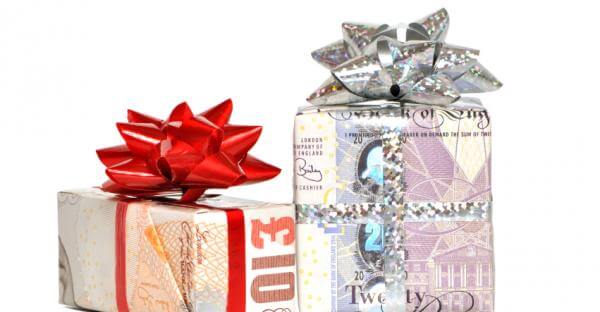

The rate of Inheritance Tax (IHT) applied to a person’s Estate on death is 40% on all chargeable assets above a certain threshold, the nil rate band. Business assets and agricultural property should qualify for relief from IHT provided they have been owned for a sufficient period, however most other assets including cash and investments will become chargeable on death.
One easy way to avoid this tax charge is to spend your cash or give it away during your lifetime, however there are restrictions on how much you can give away tax free.
The exception to this rule is gifts between married couples or civil partners, who can transfer assets between them at will without any tax implications. For everyone else however, the following guidelines should assist in ensuring that gifts are made as tax efficiently as possible.
The Annual Exemption
An individual can make a lifetime gift of up to £3,000 per annum which will be exempt from IHT. Furthermore, any unused exemption from the previous year can be carried forward to the following year, resulting in a maximum one off exempt gift of £6,000.
Small gifts
You can make as many gifts of up to £250 to as many different people as you want and they will not be subject to IHT. A recipient of a gift covered by the annual exemption should not also benefit from the small gifts exemption.
Wedding gifts
Parents can make gifts of up to £5,000.
Grandparents or great grandparents – up to £2,500.
Anyone else – up to £1,000.
These gifts will be exempt from IHT providing the gift is made prior to the wedding and the wedding actually takes place.
Gifts to assist with living costs
Any gifts specifically to assist with another person’s living costs, such as an elderly relative or a child under 18 or in full time education, can be exempt from IHT.
Gifts to Charities and Political Parties
Gifts to Charities, national museums, universities, amateur sports clubs, the National Trust and other bodies are exempt from IHT, as well as to political parties under certain conditions.
Gifts from surplus income
If you can demonstrate that there is sufficient income to maintain your normal standard of living, exempt gifts can be made out of your surplus income. To succeed however, the gifts should generally be regular e.g. annual and it is important to keep good records showing that they are made out of surplus income, and do not adversely affect your normal standard of living.
Potentially Exempt Transfers (PETs)
Most other gifts that do not fall into the categories above are classified as PETs.
A PET should become fully exempt from IHT provided you live more than seven years from the date of the gift. However, if you die within seven years, the gift will be added to your Estate and reassessed – potentially becoming subject to IHT.
Care must be taken when making larger gifts that are not immediately exempt from IHT. If tax does become due on a PET it is normally the person who received the gift who is liable to pay the tax.
